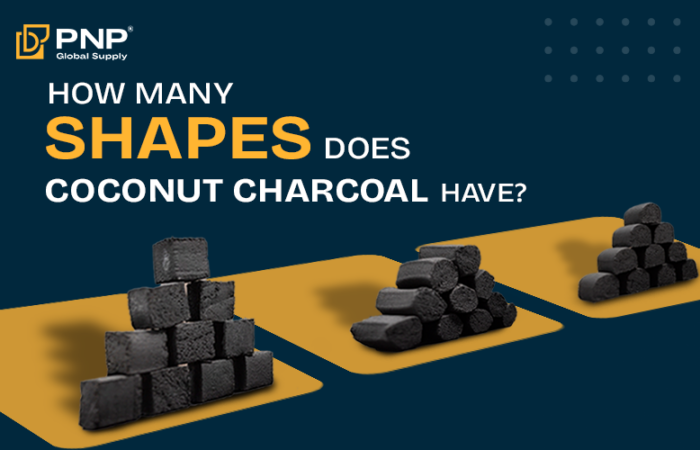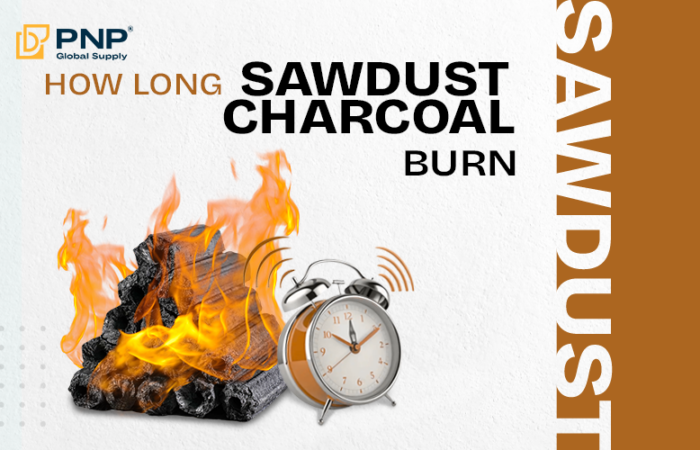Charcoal briquettes are a popular fuel choice for grilling, barbecuing, and even in some industrial cooking applications. But did you know that not all charcoal briquettes are the same? Each type has different ingredients, properties, and performance—making it important to know how to identify them to suit your cooking needs. In this article, we’ll explore how to distinguish different types of charcoal briquettes and what makes each unique.
What Are Charcoal Briquettes?
Charcoal briquettes are compressed blocks made from various carbon-based materials. Unlike lump charcoal, which is made from whole wood pieces, charcoal briquettes are engineered to burn evenly and longer. Common raw materials include sawdust and Coconut shells
These materials are mixed with a binding agent and then pressed into uniform shapes, creating charcoal briquettes with consistent performance. Here are two popular types that often come up: sawdust briquettes and coconut charcoal.
What Are Sawdust Briquettes?
Sawdust briquettes are made by compressing sawdust—a byproduct from sawmills and wood processing. This makes them an eco-friendly and sustainable fuel source, as they reuse materials that would otherwise go to waste.
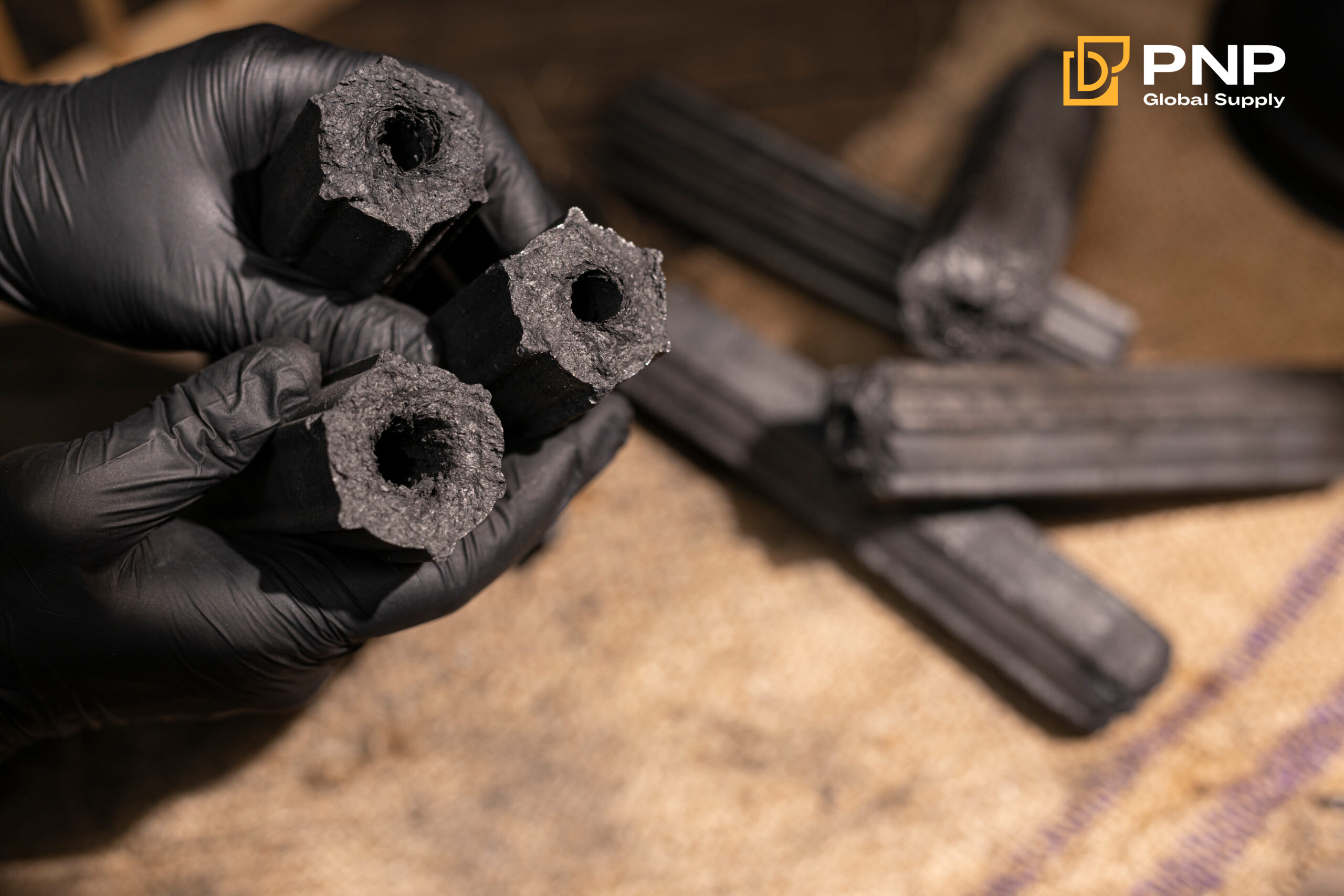
Production
Sawdust is compressed under high pressure and heat to form solid sawdust briquette charcoal. No binders or chemicals are added, making it a clean-burning and natural choice.
Texture & Shape
- Typically has a rough texture
- Commonly produced in hexagonal shapes for better airflow and burning efficiency
Performance
- Burns quickly and provides high heat output
- Ideal for grilling and high-heat cooking
- Produces a low amount of smoke and ash
What Are Coconut Charcoal Briquettes?
Coconut charcoal briquettes, also called coconut shell briquettes or coconut BBQ briquettes, are made from discarded coconut shells. After the coconut meat is removed, the hard shells are processed and turned into high-quality charcoal.
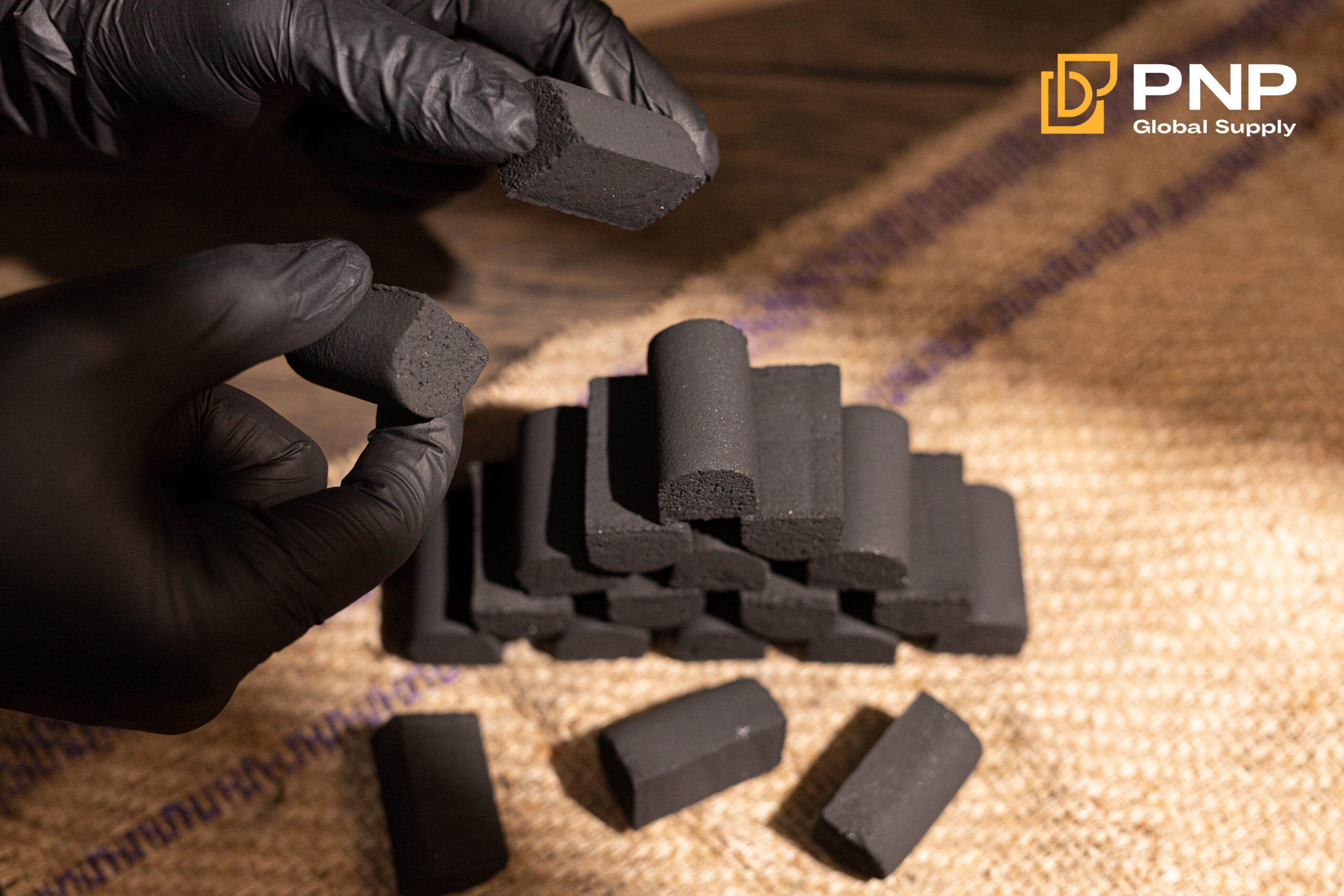
Production
Coconut shells are first carbonized, then ground into fine powder, and compressed into uniform briquettes. This process gives the charcoal a high carbon content and excellent burning properties.
Texture & Shape
- Smooth surface and dense texture
- Comes in several shapes: cube, finger, and hexagon
Performance
- Burns longer than sawdust briquettes
- Produces steady, even heat for extended cooking sessions
- Very low smoke and ash output, making it ideal for BBQs, restaurants, and shisha
Comparison: Sawdust vs Coconut Charcoal Briquettes
Here’s a quick side-by-side look at the key differences between the two types of briquettes:
| Feature | Sawdust Charcoal | Coconut Charcoal |
| Material | Sawdust | Coconut shells |
| Smoke Production | No | No |
| Ash Production | Low | Very low |
| Burning Time | Longer (7 hours) | Shorter (3.5 hours) |
| Heat Output | High | Consistent |
| Sustainability | Recycled wood waste | Renewable agricultural waste |
Choosing the Right Briquettes for Your Needs
The best charcoal briquettes depend on your preferences:
- Choose sawdust briquette charcoal if you want an affordable, eco-friendly option that provides quick and high heat. Great for casual BBQs and heating.
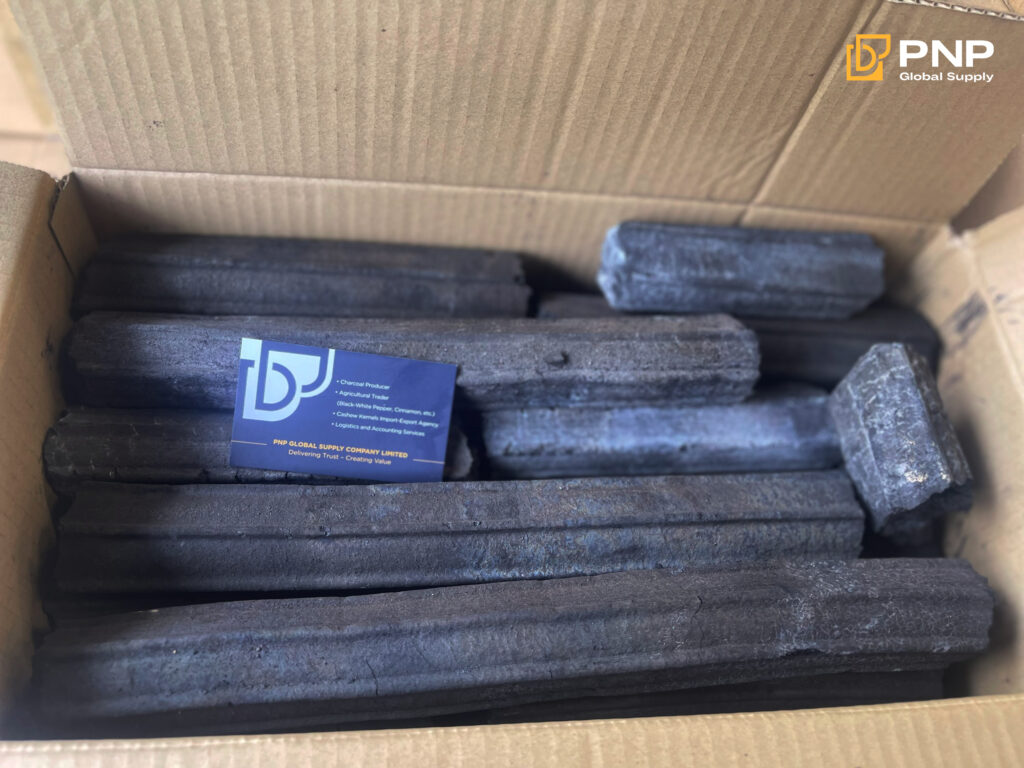
- Go with coconut charcoal briquettes if you prefer a cleaner, longer-lasting burn with minimal ash. They are perfect for restaurants and shisha use.
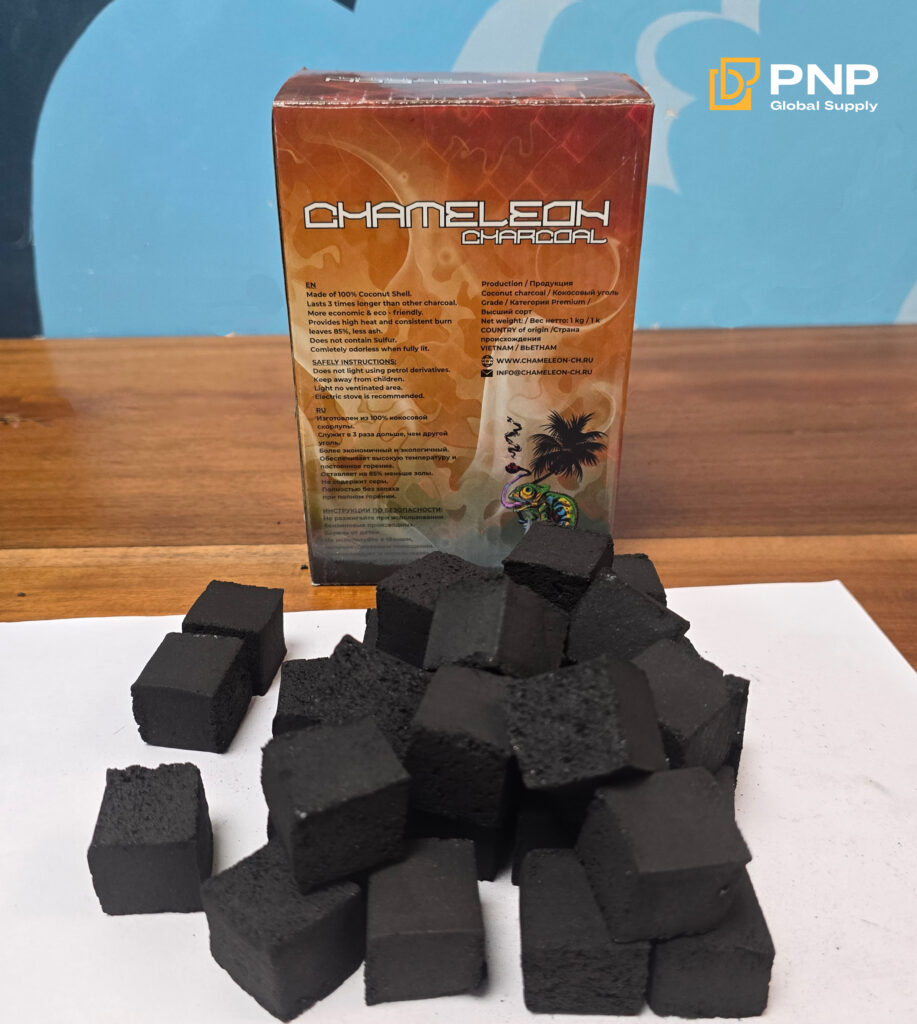
Where to Buy Briquettes
Whether you’re looking for sawdust briquettes for sale or coconut BBQ briquettes, choosing a reliable supplier is key. Here are some tips when planning to buy briquettes:
- Always choose trusted brands and manufacturers such as PNP Charcoal, known for quality coconut charcoal and sawdust briquette charcoal
- Check for product details like burn time, shape, and material
- Compare briquettes price from different sellers to find the best deal without compromising quality
- Read customer reviews or request samples before buying in bulk
In Conclusion
Choosing between sawdust briquettes and coconut charcoal briquettes depends on your cooking style, budget, and environmental preferences. Both are cleaner alternatives to traditional charcoal and offer unique benefits.
Whether you’re grilling on the weekend, running a BBQ restaurant, or just looking for reliable fuel, both options are worth considering. Just make sure to choose a supplier that provides high-quality charcoal and fair briquettes prices.
Want to know more about charcoal briquettes? Watch this: How to Distinguish Types of Charcoal Briquettes #charcoalgrill
________________________________
Contact us for more information
Facebook: PNP Charcoal
Instagram: PNP Charcoal
Email: info@pnpglobalsupply.com

